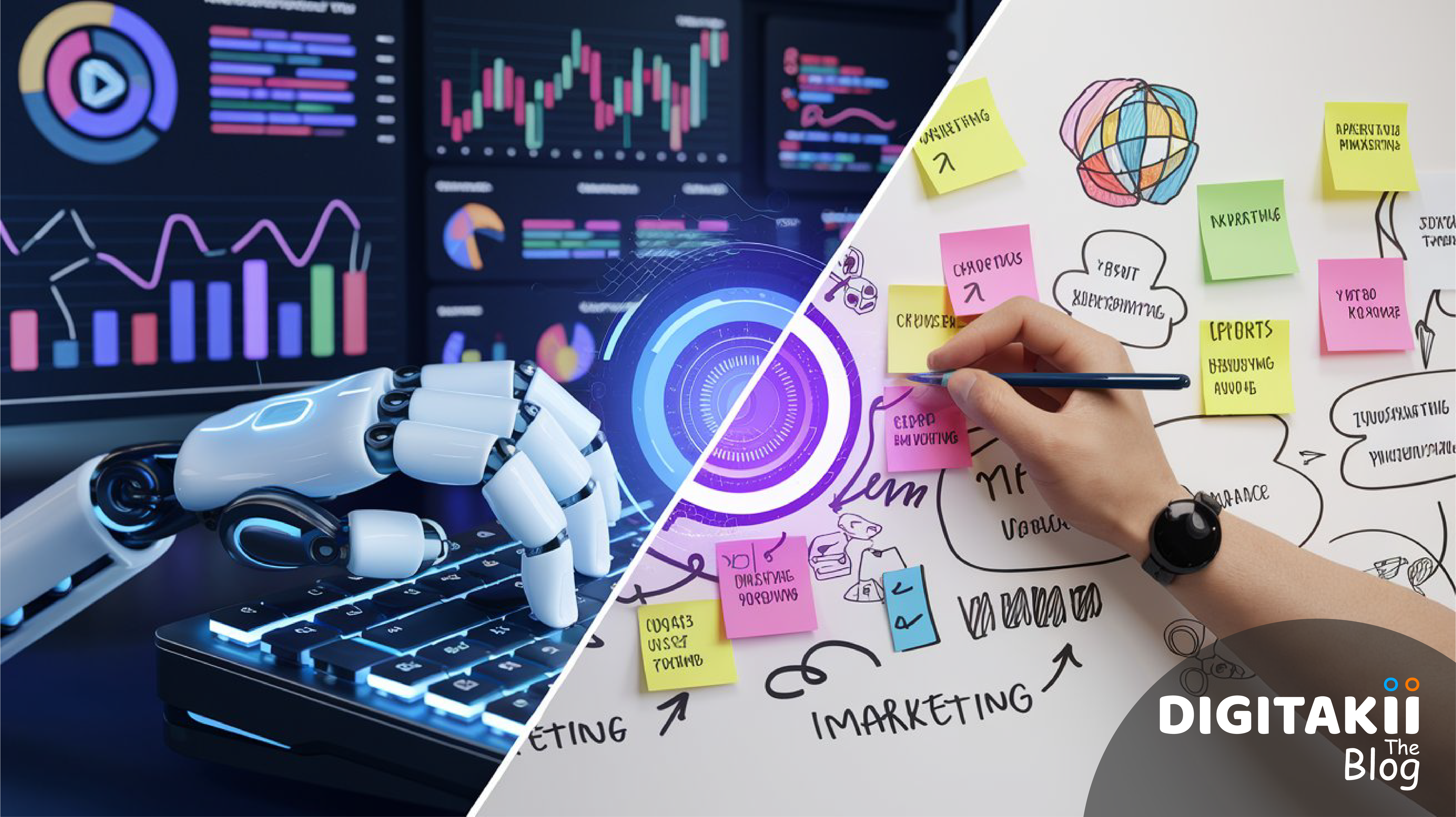Introduction: The Impact of AI on Business Decision Making
In today’s fast-paced business environment, companies are constantly seeking ways to gain a competitive edge. With vast amounts of data at their fingertips, the real challenge lies in converting that data into actionable insights that drive informed, smarter decisions. This is where decision-making software powered by AI comes into play. By leveraging the capabilities of artificial intelligence (AI), businesses can make faster, more accurate decisions, streamline operations, and create data-driven strategies that foster growth.
AI is no longer a futuristic concept—it’s revolutionizing how businesses plan, strategize, and execute decisions. From automating routine tasks to providing predictive analytics, AI tools are reshaping the decision-making landscape. This article explores how AI for business decision support is improving strategic planning, driving growth, and giving companies a competitive advantage.
Understanding the Role of AI-Powered Decision Making Software in Modern Business
In the past, business decisions often relied on intuition, experience, or a limited set of data. However, in a world where data is generated at an unprecedented rate, this approach is no longer effective. Today, decision-making software with AI is at the core of business transformation, enabling companies to make data-driven decisions in real-time.
AI-driven tools can process vast amounts of data at incredible speeds, identifying patterns, trends, and correlations that would go unnoticed by human analysts. By using AI-powered business decision-making software, organizations can analyze customer behavior, market trends, and more—empowering them to make informed and timely decisions that foster business growth.
For example, retail companies utilize AI algorithms to forecast inventory needs, while financial institutions rely on AI for market prediction. This data-driven decision-making approach enhances growth by helping businesses make smarter investments, mitigate risks, and seize emerging opportunities.
The ability of AI tools to analyze large datasets enables businesses to make more accurate and strategic decisions. With AI, companies can simulate various scenarios, predict outcomes, and determine the most optimal course of action. This shift toward intelligent decision-making accelerates business growth, enhances operational efficiency, and strengthens market positioning.
Enhancing Strategic Planning Efficiency with AI
Strategic planning is vital for business success, but it can be complex and time-consuming. Traditionally, it involved collecting data, analyzing it manually, and making predictions based on limited insights—processes that were both slow and prone to error.
AI for business decision support is revolutionizing this process by automating and streamlining strategic planning. AI tools can gather data from various sources—such as internal metrics, market indicators, and competitor activities—and analyze it to identify key trends and insights. These insights are then used to create more effective and informed strategies.
For instance, AI can forecast consumer demand by analyzing historical data, current market conditions, and trends. By assessing risk factors, AI helps businesses mitigate potential pitfalls, enabling proactive decision-making. This reduces the time and effort required for data analysis, allowing companies to focus on higher-level strategic objectives and create more agile, adaptable business strategies.
Leveraging Decision Making Software AI to Drive Smarter Decisions
In today’s data-driven world, businesses have access to an overwhelming amount of information. However, the real value lies in how this data is leveraged to make decisions that drive growth. AI-powered decision-making software helps businesses unlock the full potential of their data by transforming it into actionable insights.
AI tools can process structured and unstructured data from multiple sources—social media, customer interactions, and financial reports—offering businesses a holistic view of their operations. Using machine learning algorithms, AI can identify correlations and trends that would be nearly impossible for humans to detect.
For example, AI-powered decision-making tools can analyze social media posts, product reviews, and purchase histories to gauge customer sentiment, preferences, and buying behaviors. These insights empower businesses to make smarter decisions related to product development, marketing strategies, and customer service.
In manufacturing, AI predicts equipment failure before it occurs, allowing for proactive maintenance and reducing downtime. In healthcare, AI tools analyze patient data to recommend treatment plans, improving outcomes and operational efficiency.
AI’s ability to continuously learn and improve ensures that businesses can refine their decision-making over time, aligning it with real-time market conditions and customer needs. This data-driven approach not only enhances operations but drives long-term growth by making businesses more adaptive to changing demands.
Gaining a Competitive Edge with AI for Business Decision Support
In a competitive business environment, staying ahead of the competition is crucial. AI-driven decision-making software is enabling businesses to do just that by providing real-time insights, accelerating decision-making, and facilitating strategic actions. By incorporating AI into their decision-making processes, companies are improving internal operations and responding more effectively to external challenges.
For instance, in the financial services sector, AI can analyze market data to predict stock trends, empowering businesses to make quicker, more accurate investment decisions. In retail, AI helps companies anticipate customer demand, optimizing inventory and supply chain strategies, and ensuring they stay ahead of competitors.
AI tools also enable businesses to optimize pricing strategies. By analyzing market conditions, customer behavior, and competitor pricing, AI can recommend the most effective pricing model to maximize profits while maintaining customer satisfaction.
Additionally, AI-driven decision-making software improves customer engagement by personalizing marketing messages and offers based on individual preferences. This level of personalization boosts customer loyalty, increases conversion rates, and provides a significant competitive advantage.
By unlocking these capabilities, businesses gain insights that allow them to stay ahead of competitors, anticipate market shifts, and deliver superior customer experiences—empowering them to maintain a competitive edge in a rapidly changing market.
The Future of AI for Business Decision Support: Key Trends and Impacts
The future of decision-making software AI holds immense potential as technology continues to advance. Key trends that will shape its impact on business strategies include:
- Autonomous Decision-Making: AI is evolving to make more complex decisions. Previously used primarily for data analysis and predictive modeling, AI systems are now capable of making autonomous decisions in areas like financial forecasting and marketing management. This shift will allow businesses to automate many decision-making aspects and increase operational efficiency.
- Integration with Emerging Technologies: AI will become increasingly integrated with other technologies such as the Internet of Things (IoT) and blockchain. These integrations will provide businesses with even more data, resulting in smarter and more comprehensive decision-making.
- Real-Time Adaptability: As AI technology advances, businesses will be able to create dynamic, adaptive strategies that respond to changing market conditions in real-time. Decision-making software AI will not only assist in decisions—it will be an integral part of the strategic planning process, driving long-term growth and success.
Conclusion: The Power of AI in Modern Business Decision Making
AI is no longer just a buzzword; it’s a transformative tool that is reshaping how businesses make decisions and plan for the future. From enhancing strategic planning efficiency to unlocking competitive advantages, decision-making software AI is enabling companies to grow by providing faster, more accurate insights that guide smarter decisions.
As AI continues to evolve, businesses that embrace these technologies will be better positioned to thrive in an increasingly data-driven world. By leveraging AI for business decision support, companies can optimize decision-making processes and ensure they stay ahead of the competition in an ever-evolving marketplace.
Key Takeaways:
- AI is transforming decision-making by automating processes and providing real-time data analysis.
- Businesses using AI for decision support gain insights that lead to smarter decisions, improved operations, and competitive advantages.
- AI’s ability to continuously learn and adapt enables companies to refine strategies and achieve long-term growth.
- The future of AI in business decision-making includes autonomous decision-making and integrations with IoT and blockchain technologies.
Make your business decisions smarter with AI-powered decision-making software—unlock growth and stay competitive in the evolving digital landscape.



